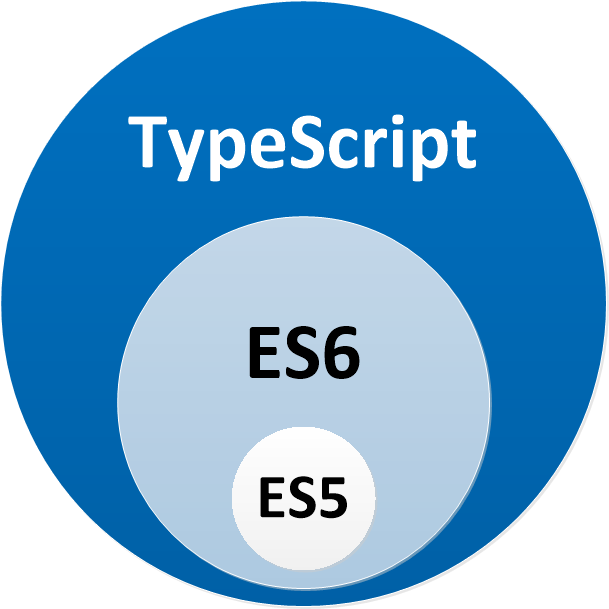After imported CryptoModule in your module, you can access to PemService anywhere with dependency injection.
import { CryptoModule, PemService } from '@akanass/nestjsx-crypto';
import { Injectable, Module } from '@nestjs/common';
@Injectable()
class NestJSServiceWithCrypto {
constructor(private readonly _pemService: PemService) {}
}
@Module({
imports: [
CryptoModule // if you want to change openssl path you have to call `.setConfig({ pem: { pathOpenSSL: '/path/to/openssl' } })` when importing
],
providers: [
NestJSServiceWithCrypto
]
})
export class NestJSModuleNeedsCryptoModule {}- API in Detail
- .createPrivateKey([keyBitsize, options])
- .createDhparam([keyBitsize])
- .createEcparam([keyName, paramEnc, noOut])
- .createCSR([options])
- .createCertificate([options])
- .readCertificateInfo(certificate)
- .getPublicKey(certificate)
- .createKeyPair([keyBitsize, options])
- .getFingerprint(certificate[, hash])
- .getModulus(certificate[, password])
- .getDhparamInfo(dh)
- .createPkcs12(key,certificate,password[, options])
- .readPkcs12(bufferOrPath[, options])
- .checkPkcs12(bufferOrPath[, passphrase])
- .verifySigningChain(certificate, ca)
- .checkCertificate(certificate[, passphrase])
- Parameters types in detail
- Change History
Creates private key.
Parameters:
- {number} keyBitsize (optional): Size of the key. (default:
2048bit).- {PrivateKeyCreationOptions} options (optional): object of
cipherandpassword. (default:empty object).
Response:
{RxJS.Observable} The successfully generated
private keywill be passed as a{key}object.
Example:
this._pemService.createPrivateKey()
.subscribe(
(privateKeyCreationResult: PrivateKeyCreationResult) => console.log(privateKeyCreationResult), // Show `{key}` in the console
e => console.error(e.message) // Show error message in the console
);Creates dhparam key.
Parameters:
- {number} keyBitsize (optional): Size of the key. (default:
512bit).
Response:
{RxJS.Observable} The successfully generated
dhparam keywill be passed as a{dhparam}object.
Example:
this._pemService.createDhparam()
.subscribe(
(dhParamKeyCreationResult: DhParamKeyCreationResult) => console.log(dhParamKeyCreationResult), // Show `{dhparam}` in the console
e => console.error(e.message) // Show error message in the console
);Creates ecparam key.
Parameters:
- {string} keyName (optional): Name of the key. (default:
secp256k1).- {string} paramEnc (optional): Encoding of the elliptic curve parameters. (default:
explicit).- {boolean} noOut (optional): his option inhibits the output of the encoded version of the parameters. (default:
false).
Response:
{RxJS.Observable} The successfully generated
dhparam keywill be passed as a{dhparam}object.
Example:
this._pemService.createEcparam()
.subscribe(
(ecParamKeyCreationResult: EcParamKeyCreationResult) => console.log(ecParamKeyCreationResult), // Show `{ecparam}` in the console
e => console.error(e.message) // Show error message in the console
);Creates a Certificate Signing Request.
If options.clientKey is undefined, a new key is created automatically. The used key is included in the response return as clientKey.
Parameters:
- {CSRCreationOptions} options (optional): Option object.
Response:
{RxJS.Observable} The successfully generated
CSRwill be passed as a{csr, clientKey}object.
Example:
this._pemService.createCSR()
.subscribe(
(csrCreationResult: CSRCreationResult) => console.log(csrCreationResult), // Show `{csr, clientKey}` in the console
e => console.error(e.message) // Show error message in the console
);Creates a certificate based on a CSR. If CSR is not defined, a new one will be generated automatically.
For CSR generation all the options values can be used as with createCSR().
Parameters:
- {CertificateCreationOptions} options (optional): Option object.
Response:
{RxJS.Observable} The successfully generated
Certificatewill be passed as a{certificate, csr, clientKey, serviceKey}object.
Example:
this._pemService.createCertificate()
.subscribe(
(certificateCreationResult: CertificateCreationResult) => console.log(certificateCreationResult), // Show `{certificate, csr, clientKey, serviceKey}` in the console
e => console.error(e.message) // Show error message in the console
);Reads subject data from a certificate or a CSR.
Parameters:
- {string} certificate (required):
certificate PEM encoded CSRorcertificate.
Response:
{RxJS.Observable} The successfully read
Certificatewill be passed as a{country, state, locality, organization, organizationUnit, commonName, emailAddress}object.
Example:
this._pemService.readCertificateInfo([CERTIFICATE])
.subscribe(
(certificateSubjectReadResult: CertificateSubjectReadResult) => console.log(certificateSubjectReadResult), // Show `{country, state, locality, organization, organizationUnit, commonName, emailAddress}` in the console
e => console.error(e.message) // Show error message in the console
);Exports a public key from a private key, CSR or certificate.
Parameters:
- {string} certificate (required):
certificate PEM encoded private key,CSRorcertificate.
Response:
{RxJS.Observable} The successfully exported
public keywill be passed as a{publicKey}object.
Example:
this._pemService.getPublicKey([CERTIFICATE])
.subscribe(
(publicKeyCreationResult: PublicKeyCreationResult) => console.log(publicKeyCreationResult), // Show `{publicKey}` in the console
e => console.error(e.message) // Show error message in the console
);Creates a private key and related public key.
Parameters:
- {number} keyBitsize (optional): Size of the key. (default:
2048bit).- {PrivateKeyCreationOptions} options (optional): object of
cipherandpassword. (default:empty object).
Response:
{RxJS.Observable} The successfully generated
key pairwill be passed as a{key, publicKey}object.
Example:
this._pemService.createKeyPair()
.subscribe(
(keyPairCreationResult: KeyPairCreationResult) => console.log(keyPairCreationResult), // Show `{key, publicKey}` in the console
e => console.error(e.message) // Show error message in the console
);Gets the fingerprint for a certificate.
Parameters:
- {string} certificate (required):
PEM encoded certificate.- {string} hash (optional): Hash function to use (either
'md5','sha1'or'sha256'). (default:'sha1').
Response:
{RxJS.Observable} The successfully exported
fingerprintwill be passed as a{fingerprint}object.
Example:
this._pemService.getFingerprint([CERTIFICATE])
.subscribe(
(fingerprintResult: FingerprintResult) => console.log(fingerprintResult), // Show `{fingerprint}` in the console
e => console.error(e.message) // Show error message in the console
);Gets the modulus from a certificate, a CSR or a private key.
Parameters:
- {string} certificate (required):
certificate PEM encoded,CSR PEM encoded, orprivate key.- {string} password (optional):
passwordfor thecertificate.
Response:
{RxJS.Observable} The successfully exported
moduluswill be passed as a{modulus}object.
Example:
this._pemService.getModulus([CERTIFICATE])
.subscribe(
(modulusResult: ModulusResult) => console.log(modulusResult), // Show `{modulus}` in the console
e => console.error(e.message) // Show error message in the console
);Gets the size and prime of DH parameters.
Parameters:
- {string} dh (required):
DH parameters PEM encoded.
Response:
{RxJS.Observable} The successfully exported
dh infowill be passed as a{size, prime}object.
Example:
this._pemService.getDhparamInfo([DH])
.subscribe(
(dhParamInfoResult: DhParamInfoResult) => console.log(dhParamInfoResult), // Show `{size, prime}` in the console
e => console.error(e.message) // Show error message in the console
);Exports private key and certificate to a PKCS12 keystore.
Parameters:
- {string} key (required):
PEM encoded private key.- {string} certificate (required):
PEM encoded certificate.- {string} password (required): password of the result
PKCS12file.- {Pkcs12CreationOptions} options (optional): Optional object of
cipherand optionalclient key password.
Response:
{RxJS.Observable} The successfully generated
PKCS12will be passed as a{pkcs12}object.
Example:
this._pemService.createPkcs12([KEY], [CERTIFICATE], [PASSWORD])
.subscribe(
(pkcs12CreationResult: PKCS12CreationResult) => console.log(pkcs12CreationResult), // Show `{pkcs12}` in the console
e => console.error(e.message) // Show error message in the console
);Reads private key and certificate from a PKCS12 keystore.
Parameters:
- {string} bufferOrPath (required):
Bufferrepresentation orpathtoPKCS12 keystore.- {Pkcs12ReadOptions} options (optional): Optional object of optional
keystoreandclient key passwords.
Response:
{RxJS.Observable} The successfully read
PKCS12will be passed as a{key,cert,ca}object.
Example:
this._pemService.readPkcs12([BUFFER])
.subscribe(
(pkcs12ReadResult: PKCS12ReadResult) => console.log(pkcs12ReadResult), // Show `{key,cert,ca}` in the console
e => console.error(e.message) // Show error message in the console
);Verifies a PKCS12 keystore.
Parameters:
- {string} bufferOrPath (required):
Bufferrepresentation orpathtoPKCS12 keystore.- {string} passphrase (optional):
Passphrasewhich will be used to open thekeystore.
Response:
{RxJS.Observable} The successfully
verifiedwill be passed as aboolean.
Example:
this._pemService.checkPkcs12([BUFFER])
.subscribe(
(verified: boolean) => console.log(verified), // Show `verified` boolean in the console
e => console.error(e.message) // Show error message in the console
);Verifies the signing chain of the passed certificate for given ca.
Parameters:
- {string} certificate (required):
PEM encoded certificate.- {string[]} ca (required): list of
CA certificates.
Response:
{RxJS.Observable} The successfully
verifiedwill be passed as aboolean.
Example:
this._pemService.verifySigningChain([BUFFER], [CA])
.subscribe(
(verified: boolean) => console.log(verified), // Show `verified` boolean in the console
e => console.error(e.message) // Show error message in the console
);Check / verify consistency of a certificate.
Parameters:
- {string} certificate (required):
PEM encoded certificate.- {string} passphrase (optional):
Passphrasewhich will be used to open thecretificate.
Response:
{RxJS.Observable} The successfully
verifiedwill be passed as aboolean.
Example:
this._pemService.checkCertificate([BUFFER])
.subscribe(
(verified: boolean) => console.log(verified), // Show `verified` boolean in the console
e => console.error(e.message) // Show error message in the console
);
- {PrivateKeyCipher} cipher (required):
cipherof theprivate key.- {string} password (required):
passwordof theprivate key.
string =>
'aes128'|'aes192'|'aes256'|'camellia128'|'camellia192'|'camellia256'|'des'|'des3'|'idea'
- {string} clientKey (optional): client
keyto use.- {string} clientKeyPassword (optional): password for
clientKey.- {number} keyBitsize (optional): if
clientKeyis undefined, bit size to use for generating a new key. (default:2048).- {string} hash (optional): function to use (either
'md5','sha1'or'sha256'). (default:'sha256').- {string} country (optional):
CSRcountry field.- {string} state (optional):
CSRstate field.- {string} locality (optional):
CSRlocality field.- {string} organization (optional):
CSRorganization field.- {string} organizationUnit (optional):
CSRorganizational unit field.- {string} commonName (optional):
CSRcommon name field. (default:localhost).- {string[]} altNames (optional): list of subjectAltNames in the
CSRsubjectAltName field.- {string} emailAddress (optional):
CSRemail address field.- {string} csrConfigFile (optional):
CSRconfig file.
- {string} serviceKey (optional):
private keyfor signing thecertificate, if not defined a new one is generated.- {string} serviceKeyPassword (optional):
passwordof theserviceKey.- {any} serviceCertificate (optional):
certificatefor theserviceKey.- {any} serial (optional): is the unique serial number for the signed certificate,
requiredifserviceCertificateis defined.- {boolean} selfSigned (optional): if set to true and
serviceKeyis not defined, useclientKeyfor signing.- {string} csr (optional): is a
CSRfor thecertificate, if not defined a new one is generated.- {number} days (optional): is the
certificateexpire time in days.- {string} clientKeyPassword (optional):
passwordof the client key.- {string} extFile (optional): extension config file - without
'-extensions v3_req'.- {string} config (optional): extension config file - with
'-extensions v3_req'.
- {PrivateKeyCipher} cipher (optional):
cipherfor thekeystore.- {string} clientKeyPassword (optional):
passwordof theclientKey.- {string[]} certFiles (optional): array of additional certificates to include - e.g. CA certificates.
- {string} p12Password (optional):
passwordfor thekeystore.- {string} clientKeyPassword (optional):
passwordof theclientKey.
- Implementation of all methods (2019-09-12)
- .createPrivateKey([keyBitsize, options])
- .createDhparam([keyBitsize])
- .createCSR([options])
- .createCertificate([options])
- .readCertificateInfo(certificate)
- .getPublicKey(certificate)
- .createKeyPair([keyBitsize, options])
- .getFingerprint(certificate[, hash])
- .getModulus(certificate[, password])
- .getDhparamInfo(dh)
- .createPkcs12(key, certificate, password[, options])
- .readPkcs12(bufferOrPath[, options])
- .verifySigningChain(certificate, ca)
- .checkPkcs12(bufferOrPath[, passphrase])
- .checkCertificate(certificate[, passphrase])


